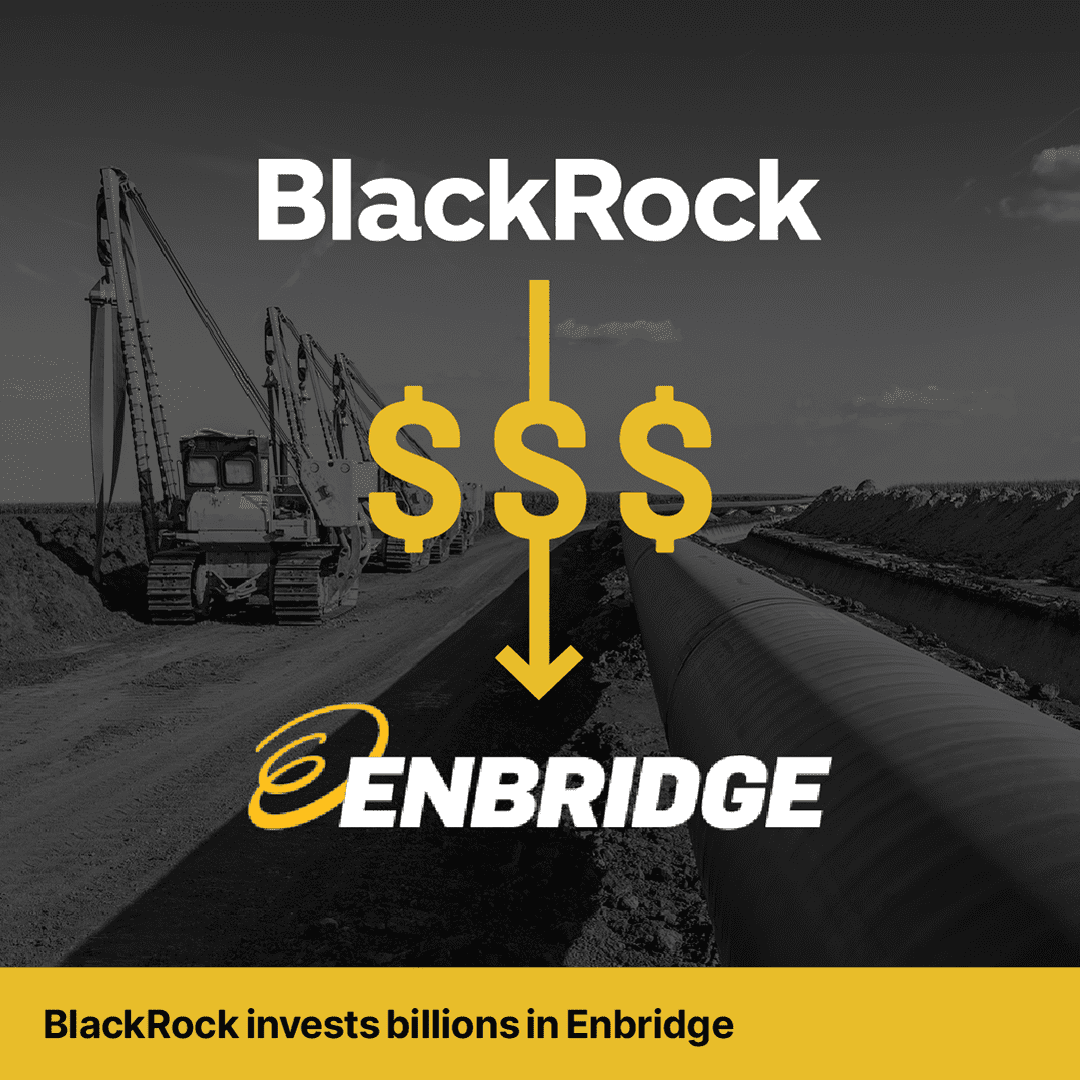This blog was originally published at https://blackrocksbigproblem.com/blackrock-invests-enbridge/
If BlackRock is serious about reaching its net zero commitments, the first step is to stop investing in dirty fossil fuel companies that don’t have realistic plans for transitioning to a clean energy economy and continue to perpetuate the violation of Indigenous rights.


We live in an age where the dissonance between rhetoric and action is greater than ever. Every week, we hear of political leaders speaking to the urgent need of tackling the climate crisis and the most powerful and influential CEOs committing to reaching net zero by 2050.
But we are simultaneously seeing the climate crisis intensifying at terrifying rates. From raging heat waves sweeping across the Pacific Northwest to literally burning oceans in the Gulf of Mexico, the reality of climate change tells a different story from the rhetoric of the leaders of the world.
A notable recent set of commitments that so far has failed to meet the urgency of the crisis, is Larry Fink’s commitment to align BlackRock’s portfolio with a net zero economy by 2050 (at the beginning of 2021, Larry Fink joined the chorus of net zero pledges with empty promises and inadequate solutions). What Larry Fink and his fellow CEOs are either missing or pretending not to see, is that we must immediately wind down fossil fuel production. So any meaningful net zero plan from a financial institution must have a pathway for ending the company’s fossil fuel financing and investments.
The tar sands industry in particular desperately needs to decline. The financial risks and climate and human impacts associated with this fuel are beyond remedy. Emissions from tar sands extraction and upgrading are between up to 4.5 times higher than those from conventional oil produced in North America. Tar sands pipelines are often proposed and built on traditional lands of First Nations and tribes without their free, prior, and informed consent. All these negative impacts are financial and reputational risks for the financial actors supporting the tar sand industry.
A report by Reclaim Finance found that BlackRock, the world’s largest asset manager, currently has $3.7 billion invested in the three key pipeline companies that still have existing or proposed pipelines to carry tar sands oil out of Alberta—Enbridge, TC Energy, and Plains All American Pipeline—and a total of $75 billion in the 30 biggest tar sands production companies.
As of December, BlackRock’s investments in Enbridge alone add up to $1.2 billion between bonds and shares. Enbridge has a track record of oil spills and Indigenous rights violations. As we speak, the Anishinaabe peoples in Northern Minnesota are engaging in a life and death battle to halt construction of Enbridge’s infamous Line 3 pipeline, a proposed pipeline expansion that aims to bring nearly a million barrels of tar sands per day from Alberta, Canada to Superior, Wisconsin. Despite months of resistance by Indigenous people and allies from across the US, financial actors like BlackRock continue to invest in the company.
BlackRock has an opportunity to live up to its rhetoric and act on its climate commitments by getting out of the tar sands industry now. To date, BlackRock has only introduced an extremely weak policy on a specific type of coal. It continues to lag far behind other financial institutions when it comes to shifting capital away from dirty fossil fuels.
If BlackRock is serious about reaching its net zero commitments, the first logical step is to stop investing in dirty fossil fuel companies that don’t have realistic plans for transitioning to a clean energy economy and continue to perpetuate the violation of Indigenous rights.
BlackRock, the time to get out of Enbridge is now.

